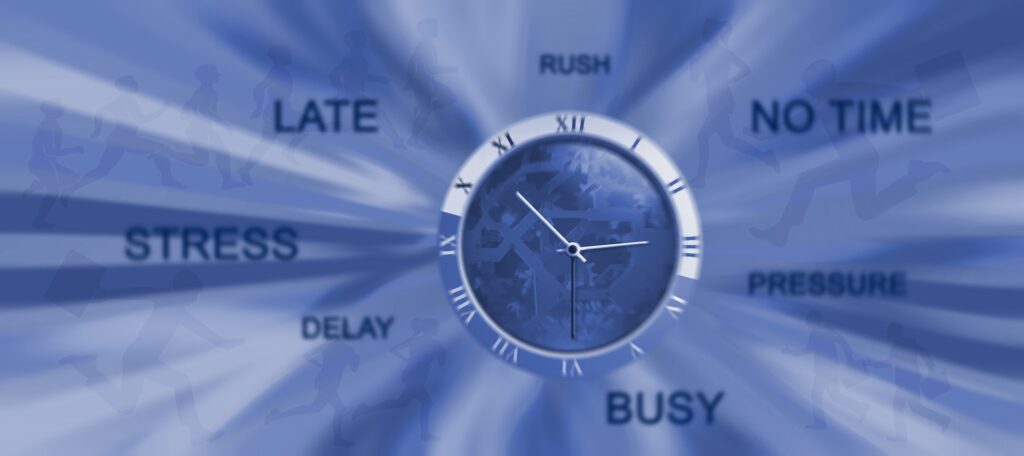“How to hold my people accountable?” is a question I hear from coaching clients. Their frustration level is usually high, and they are at their wit’s end. They’ve tried pleading with the staff, anger, telling the people they manage what and how to do their job, and in the end, everyone is miserable. So if you struggle with this you’re not alone.
Begin with a look at your own patterns
- What example are you setting?
- Look in your own eyes and be honest with yourself:
- Are you covering someone else’s responsibilities when they slack off? Is this the example you want to show the team?
- And, are you being accountable to your own responsibilities? (which includes holding your people accountable and helping the team to succeed)?
- Look in your own eyes and be honest with yourself:
- It’s hard to begin something you haven’t been doing. So, consider:
- Is the team clear on the outcomes you seek?
- Layout your expectations with the team, and use milestone deadlines. By the same token, it’s not too late to do after the project has started. But do it in partnership with the team leader or staff. Have a real conversation, with ideas and strategies coming from them.
- Is the leader, or team, actually capable of getting to the outcome?
- I see this a lot. In essence, are you (or are they) wishing they had the capability, or do you actually know if they have it? You may need to dig a bit to get an honest answer.
- Clearly, holding people accountable can upset people if they are struggling, or not clear on balancing their priorities. If your first reaction is that you hate hurting people’s feelings by not accepting the lack of progress, it’s time for you to work on your own emotional intelligence in the situation. And, when you tune into their stress or disappointment, you have an opportunity to dig in deep to support a better outcome from your team.
Excuses from them, and your reactions
As a matter of fact, has excuse-making become the norm? Some of my clients tell me that it’s “Easier letting people off the hook than watching them struggle to explain”. Get to the bottom of this. Explore it with the person or the team.
Last, but not least of all, if you find yourself jumping to the conclusion that you need to let them go, spend time in the first 5 steps above, and make sure the problem isn’t within your style of management or fear of holding people accountable.
Here are some ways to reframe the process of holding people accountable:
#1. Think of accountability as an alliance. What you are actually doing is holding each other accountable — to reaching a goal that you both have.
Here is where you take time to discuss and clarify shared and non-shared responsibilities. For example, ask these questions:
- What are we responsible for in this project?
- Then, what am I responsible for in getting the project done?
- And, what are you responsible for in achieving the outcome?
Above all, when you consider the responsibilities, discuss them in behavioral terms, not simply end results. A behavioral goal is solely focused on what you, and only you, are doing. Generally speaking, to hone in on a behavioral goal, think of your outcome goal, and then ask: “what would it take for you (not John, not Marcy…. you) to achieve this goal?”What do you have to do to make it happen? Those actions are your behavioral goals. In this way, you will be able to hold people accountable to their behaviors.
#2. Use accountability behaviors and practices.
- Ask, “What can I do to support your success?”
- Be sure that goal setting is done in partnership.
- Define how behaviors impact results.
- Assume responsibility for the success of your team.
- Convince everyone that you’re committed to their success.
Keep in mind that your actions and choices are key here and would include such things as:
- The way in which you communicate with others
- How you spend your time
- Your behavior and manners
- The consideration and respect you show others
- Your attitude and thoughts
- The way you respond to challenge
#3. Define your accountability process – not just the end result.
- Start with regular one-on-ones.
- Set milestones together. What do you need to get done today or this week?
- Share the weekly/monthly steps with the others on your team. Why? You want them as aware as you are when things are going south.
#4. You help them succeed. Don’t just focus on the numbers.
For the most part, if you’re a manager, you are a coach. The major focus of a leaders’ work is less centered on holding people accountable and constantly framed on helping them succeed. Moreover, show candor and expect discipline. Focus on their success by looking at skill and management development. As a result, they can assume ownership of the project more fully.
#5. Tell your team that you aren’t good at holding people and discuss how to practice it. Clearly, they are tied to your success. Importantly, when you show vulnerability, they too can be open with you. Together, you can forge a new relationship.
As shown above, a coach can help you get better at this. If you want to schedule 2 sessions with me on improving your skills at holding people accountable, mention this article and I’ll give you a third one for free.












